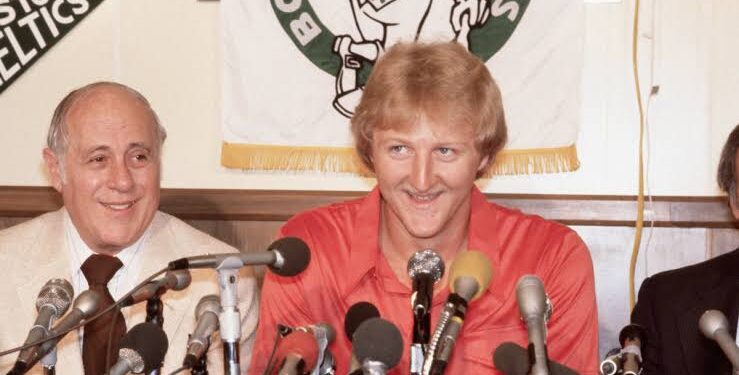The NBA’s Greatest Impact From Larry Bird Was In The…
It might be best to examine Larry Bird’s impact on the NBA from inside the International Space Station in order to gauge its size. He was an executive with a long term, a successful coach, and a member of the Hall of Fame. Bird accomplished a great deal while playing in the NBA. Despite all of Bird’s accomplishments as a player, coach, and executive, the NBA rules themselves could be the most enduring aspect of his legacy. During his playing career, he was personally responsible for two significant policy changes.
Although he was not involved in the policy decisions, he was the driving force behind at least one change that continues to have an impact on the NBA today.
For the 1983–84 season, the NBA and the Players Association decided to implement the first wage cap in league history. The Boston Celtics were not the first club to benefit from what became known as the Larry Bird exception, despite what the public believes. Teams are able to pay their free agents more than the salary cap because to this clause.
Bird was already included on the cap sheet because he had signed a seven-year contract prior to the 1983–84 campaign. But Red Auerbach, the president of the Boston Celtics, took advantage of the new legal loophole to acquire a few more pieces of the 1980s Boston powerhouse. In 1988, the Celtics made use of their Bird rights to secure an extension for the player.
Indiana State’s Larry Bird, who recently signed with the Boston Celtics, is beaming with general manager Red Auerbach. | Getty Images/Bettin Archive In 1978, the Boston Celtics secured the rights to negotiate with Indiana State star Larry Bird by taking advantage of a rarely used draft rule. In 1978–79, he had already made the decision to go back to school for his senior year. The previous season, Auerbach’s Celtics had only won 32 games, which gave Boston the sixth overall pick. So Auerbach took a different approach instead of asking a player to sign a contract.
He chose Bird in accordance with a clause known as the junior-eligible rule. It did not matter if the juniors had applied for the draft; teams could still select them. After that, the team would have until the day before the draft of the subsequent year to sign the athlete. Bird was chosen by Boston as a junior eligible. Just over two weeks prior to the 1979 draft, the Celtics signed him to a five-year contract that set a record at the time.
In May 1979, that regulation was removed, and it became operative for the 1980 NBA draft. The Chicago Sun-Times (via The Draft Review) said that at the time, a Chicago Bulls owner stated that it was directly related to the Larry Bird situation.
Larry Bird won the first of his three NBA MVP awards in 1983–84. Later on, he became one of the select few to win three straight years. Wilt Chamberlain and Bill Russell are the only other members of that specific club. In addition, Bird won the NBA Rookie of the Year award in 1979–1980, was the MVP of the NBA Finals twice, and also won the MVP award in the All-Star Game. And there’s the entire Dream Team concept.
Afterwards, in his first season as the Indiana Pacers’ head coach, Bird was awarded Coach of the Year. Compared to the previous season, his Pacers won 19 more games. In the Eastern Conference Finals, they later forced Michael Jordan’s Chicago Bulls to play seven games. In 1999, Bird led Indiana back to the conference finals, when the New York Knicks beat them. In 2000, the Pacers played in their one and only NBA Finals, when they were defeated by the Los Angeles Lakers. Bird committed to a three-year coaching tenure when he accepted the position. As promised, he resigned following the Finals.














